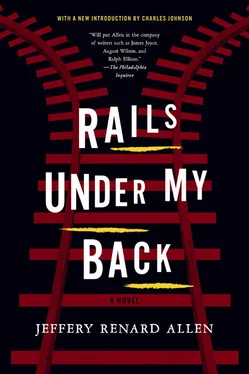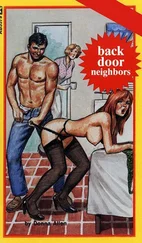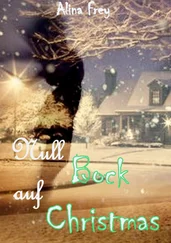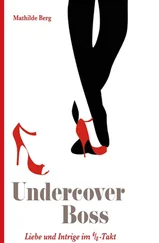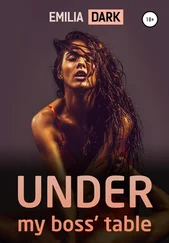She exited the bus. Stood on the sidewalk, hand on hip, and screamed at him, head jerking to the words. Still not satisfied, she hoisted the toddler above her head, champion weight lifter, then ran toward the bus, as if she would throw the toddler through the window. The bus pulled away.
Dumb bitch. He said it to himself. Fuckin hood rat. His seat offered no comfort. Inez live too damn far away. Too damn far. A long train ride, then a long bus ride. Shit. A flow of streets unfurled behind him. Sunlight angled across the river. The sprawl of the city and the sun like its glowing heart. With sniper-sensitive sight, he followed birds through the bus window, black images through blue sky, flying well and very low, with a calm, favorable wind. To his left (in the distance), the Central River pulled its drying legs together. To his right (near), Tar Lake stirred under a slow flood of sun. Formless substances afloat, each separate from the other, but each also kin to water, the element which will, in time perhaps, dissolve them into a new solid identity. A ship sailed for some unknown destination. I know everything about that ship. By simply stretching out his hand he could touch it. Ship lights bubble up and bob on night water. Anchors and chains ring, cowbells. Awaken you as Uncle John slips in silence through Gracie’s front door. Moves like a bat in the dark, as he navigates the steps to Gracie’s bedroom. Dallas’s drunken ghost knocks and bumps against the stairs behind him. He peeps into the room where you and Jesus sleep, the hall light glowing behind him, and Dallas’s ghost too, his eyes fired and twisted.
Gracie’s house was completely surrounded by Tar Lake. Though the lake was but a short walk from the house, Uncle John would pack his fishing gear in the trunk of his yellow cab — well, back in the day he drove a red Eldorado, then the green Cadillac, then the gold Park Avenue — park Hatch and Jesus in the back seat, and drive the few blocks to the lake. We don’t wanna walk. We like to ride. Hatch, Jesus, and Uncle John would play their favorite game, hide-and-seek. The boys would race down the hill toward the water, arms windmilling, and dive down into the tall grass. Uncle John would sneak up on them without a sound. Then Jesus would snag a black worm onto a rusty hook. Cast his bait. Motionless rod and motionless line in the current. Hatch would relax with a book and cast his thoughts into the black water. His fingers could handle the toughest guitar strings, but not twisting, slippery worms. Uncle John would ready his rod, clean the horsehair line— stronger than wire, he said — polish the gold-colored hook with his silk handkerchief, then tug on the bait, a red-snapping fiddler crab. Patient— Patience catches a fish, he said — he might spin a tale or two. I remember this one time. This time, once, when this guy got shot. The bullet made his clothes catch fire. The weirdest shit. The bullet hit him in the thigh. A flesh wound. But his clothes caught fire. And the fire burned him crisp. He would catch small, green, finger-thick catfish. Be careful of them whiskers. Cut you like a razor. He would clean his catches right there at the lake, nail a hammer through a head and pull off the skin in a clean stroke, easy as removing a sock. Now, if yall really wanna catch something, we gotta drive down to the Kankakee River. One night, Uncle John bought Gracie a bowl of goldfish, which she placed on the fireplace mantel next to Cookie’s photograph, commanding a watery view of the living room. Uncle John, why they call them gold? Ain’t they orange? She gave Hatch a few sparkling fish to take home with him. One jumped like a pole vaulter out of the bowl he had carried all the way from Lula Mae’s lil house in West Memphis. He stood and watched it. Felt sea spray in his belly with each flop of the fish’s tail. Felt his heart jump inside his ribs. For hours he watched it, beating out its rhythm.
He didn’t chase the memory. Braided sun whipped the bus from side to side. Whipped him across the face.
Junior, you comin to see me?
Inez, this ain’t Junior, I’m Hatch.
You promised to come see me. Junior, you promised.
Why was he going to visit Inez? Making this long journey? Why? Well, Inez was his grandmother. More important, Inez was Uncle John’s mother. Yes, Uncle John’s mother. The why. The reason. So he must journey, must pay respect.
Junior, what time you comin?
Sun spindled light. Junior? Why she call Uncle John Junior? Lucifer was the firstborn. Doesn’t firstborn make him Junior? I was young. I was new to the city. We all make mistakes cause when you young, you think you know everything. I wouldn’t listen to Mamma or Pappa. I met him in the Renaissance ballroom. Used to be down there on Sixty-first and Ellis, right across from the Evans Hotel. See, in those days you would dance before the men came out to play their basketball. We danced. The Turkey Trot.
Well, what was it like when yall came here?
Hard. It was hard.
Hard how?
You shoulda met Pappa. He could have told you all about it.
Pappa Simmons ain’t here. He dead.
You shoulda met Pappa.
Sun shattered in flakes against the window. Hatch blew them away. Inez. The rubbish heap of old age. He would spend all afternoon and most of the evening with her, but, by morning, she would carry no memory of his visit.
A CAR DROVE BY on muted tires. The sidewalk steered him past a weed-and-bramble-filled lot that he once had believed was an alligator-and-cottonmouth-spawned swamp. A sidewalk made all the more dangerous for its narrowness. The sidewalk opened into a quiet unpaved street. Under construction to remove the old cobblestones hollow-sounding against your heels (like horse hooves), cobblestones that hollow-held the sun’s heat and black-blistered your feet, wore down car tires (so George often complained).
Trees sparkled in the morning sun. Hedges square and trim, grass patiently mowed. A line of range houses all brick, all built for returning soldiers after the great war, the war that George knew firsthand. He saw action. But how can anybody see action? Action something you do. George (old and nearly blind) kept the house up and refused all offers of assistance, climbing a shaky ladder to fix the garage roof, shoveling snow from the walk and driveway, hosing watery blackish substance from the sidewalk. Hatch had never quite pieced together the chronology. The only wedding photo showed George in his army uniform and Inez in a knee-length party dress. So they had married during or after the war. Lucifer was born the year the war began. Uncle John two years later. Pappa Simmons and Georgiana took them in.
Hatch followed a short narrow cement path around the side of the house to a low white picket fence that opened into the backyard. A small patch of garden with furrows like dirt roads. Beans and peas and tomatoes and cucumbers and lettuce and turnips and mustard greens. A bird pond— you and Jesus tried to build a birdhouse with some old sticks from the alley —of white stone that had stood here as long as Hatch could remember. Plenty of birds today, splashing and chirping. He thought twice about it and retraced his steps to the front door.
Hi, Junior. Inez speaks as if someone had punched the air out of her.
Hi, Inez. Short, slight, childlike, her round yellow prominently boned face — level with his — and wormlike wrinkles shining between the dark wings of her hair. Her body frail as tissue paper, limbs thin sticks for a toy airplane, and you are afraid to touch her, to feel her skin, afraid that she might roll up and crumble under your hug. But you must hug her. She shrivels in your arms.
Читать дальше
